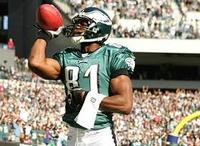I read a long story today.*
Finished Tom Wolfe’s A Man in Full (excellent read—an immense, sprawling slice of Americana in league with DeLillo’s Underworld and Chabon’s The Amazing Adventures of Kavalier and Clay) that stretches from coast to coast and cuts across all stratums of society.
Although set primarily in Atlanta, Wolfe’s tale parallels Philadelphia (and probably every city in the U.S.—which may explain its vast appeal; people relate to it) with its shady land development deals, shifty politicians, tarnished sports superstars, and social maneuvering at every level (from intrapersonal to interpersonal). It’s a very cognitive novel. The wheelings and dealings that take place on a city-wide scale reflect the internal/personal decisions and motives of each individual. Man tackles issues of race, power, affluence, wealth, social standing, etc.…with everything tying together in the end as neatly (though not as pleasantly) as John Kennedy O’Toole’s A Confederacy of Dunces. One of the best parts of the novel is Wolfe’s ability to capture and contrast the relative insecurities, anxieties, and troubles of the working poor and the fabulously wealthy. It put the Terrell Owens contract in a whole new light for me. I sneered the first time I heard T.O. say he couldn’t provide for his family/children under his current contract/pay scale. This football star makes more money in a season than most Americans (myself included) will ever see in our entire lives, and yet he is crying that he can’t make ends meet. Of course, if Sunday’s game against the Chargers is any indication, T.O. has started waiting tables for extra income (and general consensus is he shouldn't quit his day job).
One of the best parts of the novel is Wolfe’s ability to capture and contrast the relative insecurities, anxieties, and troubles of the working poor and the fabulously wealthy. It put the Terrell Owens contract in a whole new light for me. I sneered the first time I heard T.O. say he couldn’t provide for his family/children under his current contract/pay scale. This football star makes more money in a season than most Americans (myself included) will ever see in our entire lives, and yet he is crying that he can’t make ends meet. Of course, if Sunday’s game against the Chargers is any indication, T.O. has started waiting tables for extra income (and general consensus is he shouldn't quit his day job).
I probably shouldn’t feel compassion for the financial woes of someone so incredibly fortunate and rich as Terrell Owens, but after reading Charlie Croker’s mental distress over financial problems in A Man in Full, I feel better able to understand the anxiety Owens is feeling (if he’s not faking). Wolfe makes his points without beating the reader over the head with them. He cuts through race, gender, and economic status to render human every one of his characters, which doesn’t necessarily make them more likeable.
*Actually, I read it in early September.
Tuesday, October 25, 2005
Paid in "Full"
Posted by
Jesse D
at
6:04 PM
![]()
Subscribe to:
Post Comments (Atom)
No comments:
Post a Comment